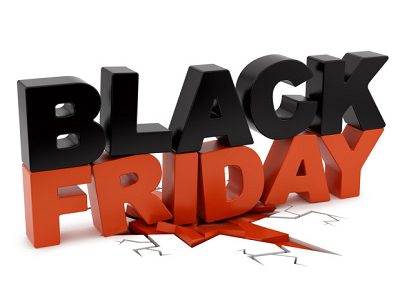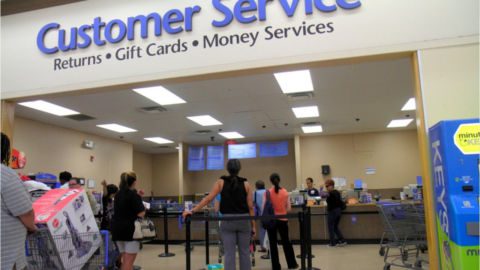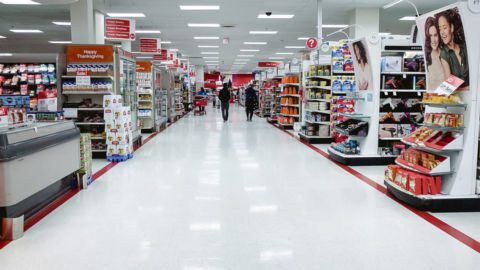Retailers may have sensed that Black Friday has been losing its punch as the single-day sales bonanza that kicks off the holiday season, but new research confirms just how sharp the drop-off has been. Only 35% of consumers who plan to shop during Thanksgiving week will do so on Black Friday, down from 51% last year and 59% in 2015, according to PwC.
“Black Friday has lost its significance,” Steven Barr, consumer markets leader for PwC, told The Washington Post. “Retailers have conditioned the consumer to believe everything’s on sale every day, which means the deals on Black Friday are not significantly different from any other time.”
The RetailWire Brain Trust debated how retailers should approach their Black Friday marketing in this changed environment; whether the so-called “death” of Black Friday is necessarily a reason to mourn: and offered ideas for differentiating themselves on Black Friday and throughout the holiday season:
Dick Seesel, Principal, Retailing In Focus
“Killed” is too strong a word, because Black Friday still represents one of the biggest shopping days on the retail calendar. But the day has lost its punch for a number of reasons:
- Most obviously, the shift from brick-and-mortar to e-Commerce. With the growing number of store closings and “zombie malls,” this will be a bigger problem than ever throughout the 2017 holiday season.
- The Thursday paper stuffed with promotional circulars doesn’t reach the huge number of Gen Y and Z shoppers who don’t even read the paper.
- As stores have extended Black Friday opening hours into Thanksgiving itself, they have simply cannibalized their own business.
These are tough “macro” challenges for an individual retailer to overcome. Some of the potential solutions involve greater use of targeted social media and other messaging to reach younger customers…and this is true from early November all the way to the last crucial weekend before Christmas. But the biggest challenge may be to make the sale offerings and merchandise content more compelling. Easier said than done (without months of advance planning), but the recent focus on putting entire assortments on sale — instead of key items at compelling price points — has drained Black Friday of its former sense of urgency.
Art Suriano, CEO, The TSi Company
The consumer today has learned that the best deals come a few days before Christmas. So each year the shopping season seems to get later and later. We also have the big week after Christmas with customers redeeming gift cards. Black Friday is no longer what it once was and will never be again.
The only way Black Friday could be successful is if it were re-invented with something more than just great shopping discounts; preferably a Black Friday experience that entices customers to shop. That would require substantial creativity and significant promotion. However the bigger question is, with all the sales retailers offer and the customer knowing that the longer they wait the better the prices will be, is Black Friday needed any longer?
Peter Luff, President, Ipsos Retail Performance
If it has a sustainable future, Black Friday has got to become an event that is healthier for retailers, rather than bigger for consumers. There is little or no incentive for retailers to make greater efforts if they are purely diluting margins without expanding sales. So value growth has to feature in the future of Black Friday. This means taking a more nuanced approach, looking to discount limited lines and targeted reductions while enticing customers to explore the fuller range. Amazon has signposted how it has learned from the ills of Black Friday and now presents an evolved approach to its “Prime Day” event: offering the best and most relevant deals to its Prime customers directly and personally. It aims to deliver everything that its customers cherish: offers that people engage with, didn’t know they needed and are tempted by, unrepeatable value and a pain-free shopping experience.
To survive, Black Friday must become a smooth and sophisticated showcase event that demonstrates the best of a retailer’s omnichannel capabilities. It must enrapture shoppers and provide well-founded reasons to spend in November without diminishing the gifting appetite over the rest of the holiday period. Perhaps that’s the means of differentiation — by making Black Friday the event targeted at spending on oneself, as opposed to the rest of the festive campaign when the spirit of shopping is directed at buying for others.
Bob Amster, Principal, Retail Technology Group
Not being a marketing person, I think that Black Friday is hype. The answer to how good the holiday season is going to be is: “How much demand is there for available goods and how much disposable income do consumers have?” If consumers want it and can afford it, it doesn’t matter if they buy it the Thursday before, the Saturday after or on Friday. For individual retailers the important thing is from whom they buy it.
Mark Ryski, Founder & CEO, HeadCount Corp.
While the frenzy around Black Friday is diminishing, there will be shoppers looking for bargains and I would advise retailers to continue to treat it as an important selling opportunity. While there will very likely be a decline in store traffic, this may actually be good for retailers. Here’s why. When stores get so overrun with traffic, conversion rates tank because it’s very difficult to efficiently serve customers — mayhem is bad for conversion. To make the most of Black Friday, retailers should ensure they have strong inventory levels backed by compelling deals that encourage multiple purchases. Next, staff the stores adequately to facilitate conversion — have staff focused on processing transactions to enable customers to get in and out quickly and efficiently.
Chris Petersen, PhD, President, Integrated Marketing Solutions
There is an old saying that it ain’t over until the fat lady sings. If predictions hold true that Cyber Monday will be bigger than Black Friday this year, the lady is about to sing. The reality is that today’s customers shop any time and everywhere. They don’t think channels, they look for a seamless experience and promotions across both digital and physical. Increasingly customers look for choice, convenience and relevance as much as a good deal. And increasingly they are using their phones to shop even if they fight the crowds and go to stores. The smart retailers will orchestrate an integrated online and store campaign, across the super shopping weekend of Black Friday through Cyber Monday.
Richard J. George, PhD, Professor of Food Marketing, Haub School of Business, Saint Joseph’s University
First, there will still continue to exist a small segment of consumers who shop Black Friday for the thrill of the hunt and being in a crowd environment. For this group some blockbuster offers would suffice. For the rest of the consumer market there is very little to be gained by shopping with the crush of people. Dialing back on Black Friday and closing on Thanksgiving may provide real cost savings as well as positive consumer preferences.













